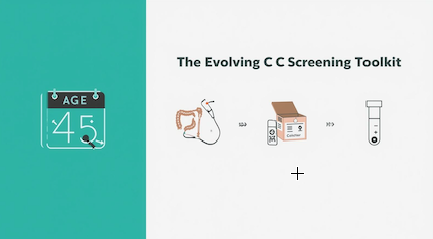When Justice Twists: Navigating the Labyrinth of a Distorted Mind
- OliveHealth

- Sep 15
- 4 min read
by Ed Fuentes, D.O.

In the wake of acts that shock our collective conscience, we often struggle to comprehend the "why." How can an individual commit violence and, in their own mind, believe they are justified? This isn't just about anger; it's about a profound psychological landscape where the very foundations of justice, morality, and reality become dangerously warped.
Let's explore the complex layers of a mindset that can lead to such devastation, and consider how a deeper understanding—and a return to core human values—might offer a path towards resolution.
The Moral Compass Adrift: A Warped Sense of Justice
At the core of this discussion is the concept of a distorted sense of justice. For some, the intricate balance of societal norms, empathy, and legal frameworks collapses, replaced by a personal, rigid, and often vengeful interpretation of "right" and "wrong." The principle of proportionality, often misconstrued as "an eye for an eye," is perverted from a legal restraint into a personal license for retribution.
This isn't just a lapse in judgment; it's a warped mindset where the individual believes they are not committing a crime, but fulfilling a higher purpose, like correcting racism, misogyny, bigotry and prejudice against a group—a dangerous mindset of justification.
The Shadow Emotions: Fear, Shame, and Condemnation
This self-righteousness often doesn't emerge in a vacuum. It's frequently fueled by a potent cocktail of deeply painful and often misunderstood emotions:
A False Sense of Fear: One of the most insidious drivers is paranoia, leading to a false sense of fear. The individual genuinely believes they are under attack, in danger, or threatened by specific people or groups. This perceived threat, though often delusional, triggers a primal "fight" response, transforming perceived victims into aggressors and violence into "self-defense."
Shame and Condemnation: Beyond fear, profound shame—the painful belief that "I am a bad person"—can be a powerful instigator. To escape this unbearable internal pain, individuals may lash out violently, projecting their self-loathing onto others or seeking to destroy what they perceive as the source of their humiliation. Coupled with a feeling of condemnation—the belief that they are already judged and cast out by society—this can strip away any inhibitions, leading to a desperate, destructive surge for control.
Guilt (and its distortions): While genuine guilt typically leads to remorse and a desire for amends, even a distorted, overwhelming sense of guilt can, in rare instances, trigger extreme reactions. In such cases, violence might become a twisted form of self-punishment or an attempt to externalize an unbearable internal burden.
Anger: The Secondary Outburst
It's crucial to remember that anger is often a secondary emotion, the outward manifestation of these deeper, more vulnerable feelings. Fear, shame, condemnation, and even guilt can all trigger intense anger, turning internal pain into external aggression. This anger becomes the fuel for the self-righteous mission, providing the perceived energy and justification for violent acts.
The Everyday Spectrum: Why Vigilance Matters for All of Us
While the extreme manifestations discussed here lead to criminal acts and severe delusions, it's vital to recognize that the underlying emotional and cognitive processes exist on a spectrum. All of us, individually, can experience these emotions—fear, shame, condemnation, and even a touch of self-righteousness—especially under the stress and pressures of modern life.
The difference between a fleeting moment of self-righteous indignation and a full-blown, dangerous delusion often lies in our capacity for vigilance. If we are not mindful of our own emotional states, if we allow unaddressed fears, deep-seated shame, or a perceived sense of condemnation to fester, our own internal moral compass can subtly drift. Our perception of "right" and "wrong" can become skewed, making us less empathetic, more prone to anger, and more rigid in our thinking. This isn't to equate everyday struggles with extreme criminality, but to highlight that the seeds of distorted thinking can exist in us all if we are not actively cultivating self-awareness and emotional health.
A Call for Peace, Understanding, and Deeper Research
Confronting this complex psychology requires more than condemnation. It demands a commitment to peace and understanding, coupled with rigorous inquiry.
The functional opposite of destructive anger is not simply its absence, but the active cultivation of:
Compassion: The ability to understand and share the feelings of others, fostering connection rather than division.
Empathy: Stepping into another's shoes, breaking down the dehumanization that often underpins a distorted sense of justice.
Dialogue and Resolution: Seeking peaceful means to address grievances, rather than resorting to violence.
Furthermore, we must urgently pursue more in-depth study and research into the role of Spirituality and empathy in fostering mental well-being and preventing radicalization. How do healthy spiritual practices provide meaning, purpose, and a moral framework that prevents individuals from succumbing to these destructive delusions? How can the transformative power of love—for self, others, and humanity—act as an antidote to the isolation, fear, and shame that breed violence?
Understanding the psychological labyrinth of a distorted mind is not about excusing violence, but about illuminating the pathways that lead to it. Only then can we hope to guide individuals back to a shared reality, where true justice is built on compassion, and genuine righteousness flows from peace.




Comments